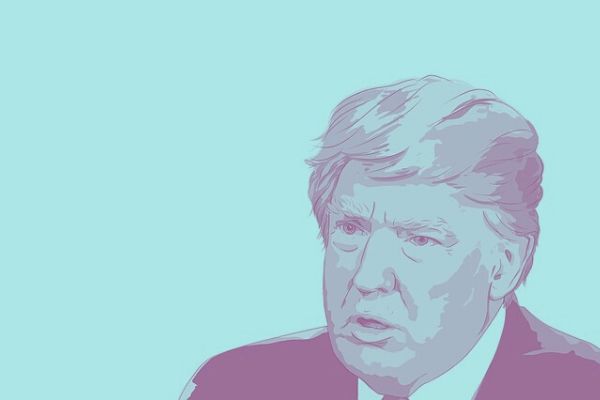In recent developments, evidence points to President Trump targeting Bitcoin since 2018, regarding China tariffs and sanctions. POTUS started showing skepticism in 2019, but it appears that the discomfort started in 2018 according to a book that is “pending publishing.”
“The Room Where it Happened”
Most recently, tensions have been elevated between President Trump, and former National Security Adviser John Bolton. Since he was fired, Bolton has been working on a book explaining his tenure in the White House. The book titled “The Room Where it Happened” has created even more clashes between POTUS and Bolton. It’s worth noting that when Bolton was working alongside Trump, policy disagreements surfaced in many areas like Afghanistan, North Korea, Iran, Venezuela, and Russia.
The 500 page book is a major concern for the Trump administration due to upcoming elections and the fact that POTUS believes the Bolton context is fabricated. In addition, the National Intelligence and Justice Department have accused the former adviser of publishing classified information.
Trump Targets Bitcoin Earlier Than We Thought
It’s been known that Trump opposed the Bitcoin infrastructure. Back in 2019, Trump shared his thoughts on Bitcoin and the proposed Facebook Libra cryptocurrency. According to reports, President Trump stated that:
“I am not a fan of Bitcoin and other Cryptocurrencies, which are not money, and whose value is highly volatile and based on thin air,” Trump wrote on Twitter.
“If Facebook and other companies want to become a bank, they must seek a new Banking Charter and become subject to all Banking Regulations, just like other Banks, both National and International,” he added.
But according to a Forbes report, it seems like Trump was targeting Bitcoin well before July 2019. In the book that John Bolton is trying to publish, it was stated that Trump told his Treasury Secretary, Steven Mnuchin to “Go After Bitcoin” as early as 2018. It was believed that this quote came from conversations in May 2018, which puts it almost a year before Trump’s initial Bitcoin tweets. It’s also believed that the topic of Bitcoin surfaced in regards to China sanctions and tariffs.
The Administration Takes Action
In July of 2019, the Treasury Secretary addressed Bitcoin and regulations. Mnuchin stated that very strong regulations were coming to the digital asset space, in order to mitigate “risk” to the financial system. In terms of financial risk, the administration believed that Bitcoin facilitated billions of dollars in illicit activities through cyber crime, tax evasion, human trafficking, and others. During the briefing, Mnuchin stated that:
“I want to be careful that anybody who’s using bitcoin — regardless of what the price is — is using it for proper purposes and not illicit purposes,” he added. “And there are billions of dollars of transactions going on in bitcoin and other cryptocurrencies for illicit purposes.”
It’s worth noting that Mnuchin has addressed the public numerous times regarding Bitcoin and other digital assets. In the beginning of 2020, Mnuchin also spoke on the Financial Crimes Enforcement Network, stating that the organization planned to roll out “Significant new requirements for cryptocurrency service providers.”
What To Watch For
With Bitcoin operating in a “decentralized” nature, many investors could be discounting the regulatory powers. There should be some concern over the fact that POTUS addressed Bitcoin in 2018 regarding China. The U.S and China continue to experience a heated relationship that could amount to larger geopolitical issues. With Bitcoin mining operations being largely controlled by China, the U.S could very well target Bitcoin from a tariff and sanction standpoint. China most likely knows this, which further explains the region’s movement into its own digital currency. We’ve seen all sorts of developments around China’s centralized digital currency that it plans to roll out in the near future. China already has some of the largest companies in pilot mode. If the U.S cracks down on Bitcoin, watch for China to leverage its digital currency in the near future, which could put additional pressure on the USD, especially if China were to back their digital currency by a commodity. Despite Bitcoin being a decentralized protocol, there’s many ways that the administration could halt adoption. Moves like banning off-ramps into U.S banks or banning on-ramps from U.S financial institutions would serve a big blow to the industry.
In addition, the Trump organization may already be positioning for additional oversight in 2021. According to a report by Visionary Financial, the 2021 budget proposal includes tough countermeasures for crypto. The proposal “gives more power to the Treasury Department on crypto. Besides that, it proposes funding for FinCEN to expand its capabilities to fight crypto-threats and other financial threats.” Besides this, the Trump administration wants the Secret Service to relocate to the Department of Treasury.
It will be interesting to see what the future holds for Bitcoin in terms of regulatory approach. As market cap increases, the issue will only get larger. The cryptocurrency environment in general is heavily split between centralized and decentralized folks. Many believe that cryptocurrency will be mass adopted through a centralized approach ( entities working with regulators ), but even more people strongly disagree with centralization, and believe that decentralization ( no central parties ) will fuel the adoption of digital assets.
Image Source: Pixabay
Notice: Information contained herein is not and should not be construed as an offer, solicitation, or recommendation to buy or sell securities. The information has been obtained from sources we believe to be reliable; however no guarantee is made or implied with respect to its accuracy, timeliness, or completeness. Authors may own the crypto currency they discuss. The information and content are subject to change without notice. Visionary Financial and its affiliates do not provide investment, tax, legal or accounting advice. This material has been prepared for informational purposes only and is the opinion of the author, and is not intended to provide, and should not be relied on for, investment, tax, legal, accounting advice. You should consult your own investment, tax, legal and accounting advisors before engaging in any transaction. All content published by Visionary Financial is not an endorsement whatsoever. Visionary Financial was not compensated to submit this article Please also visit our Privacy policy; disclaimer; and terms and conditions page for further information.

